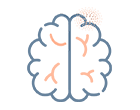Folstein, S., & Rosen-Sheidley, B. (2001). Genetics of austim: complex aetiology for a heterogeneous disorder. Nature Reviews Genetics, 2(12), 943-955. doi: 10.1038/35103559
Bailey, A., Le Couteur, A., Gottesman, I., Bolton, P., Simonoff, E., Yuzda, E., & Rutter, M. (1995). Autism as a strongly genetic disorder: evidence from a British twin study. Psychological Medicine, 25(1), 63-77. doi: 10.1017/s0033291700028099
Geschwind, D., & Levitt, P. (2007). Autism spectrum disorders: developmental disconnection syndromes. Current Opinion In Neurobiology, 17(1), 103-111. doi: 10.1016/j.conb.2007.01.009
Fayyad, J., De Graaf, R., Kessler, R., Alonso, J., Angermeyer, M., & Demyttenaere, K. et al. (2007). Cross-national prevalence and correlates of adult attention-deficit hyperactivity disorder. British Journal Of Psychiatry, 190(5), 402-409. doi: 10.1192/bjp.bp.106.034389
Smith, A., Mick, E., & Faraone, S. (2009). Advances in genetic studies of attention-deficit/hyperactivity disorder. Current Psychiatry Reports, 11(2), 143-148. doi: 10.1007/s11920-009-0022-0
Franke, B., Faraone, S., Asherson, P., Buitelaar, J., Bau, C., & Ramos-Quiroga, J. et al. (2011). The genetics of attention deficit/hyperactivity disorder in adults, a review. Molecular Psychiatry, 17(10), 960-987. doi: 10.1038/mp.2011.138
Thapar, A., & Cooper, M. (2016). Attention deficit hyperactivity disorder. Lancet (London, England), 387(10024), 1240–1250. https://doi.org/10.1016/S0140-6736(15)00238-X
Faraone, S., & Mick, E. (2010). Molecular Genetics of Attention Deficit Hyperactivity Disorder. Psychiatric Clinics Of North America, 33(1), 159-180. doi: 10.1016/j.psc.2009.12.004
Wolraich ML, Hagan JF, Allan C, et al; Subcommittee on Children and Adolescents with Attention-Deficit/Hyperactive Disorder. Clinical Practice Guideline for the Diagnosis, Evaluation, and Treatment of Attention-Deficit/Hyperactivity Disorder in Children and Adolescents. 2019;144(4):e20192528. (2020). Pediatrics, 145(3), e20193997. doi: 10.1542/peds.2019-3997





